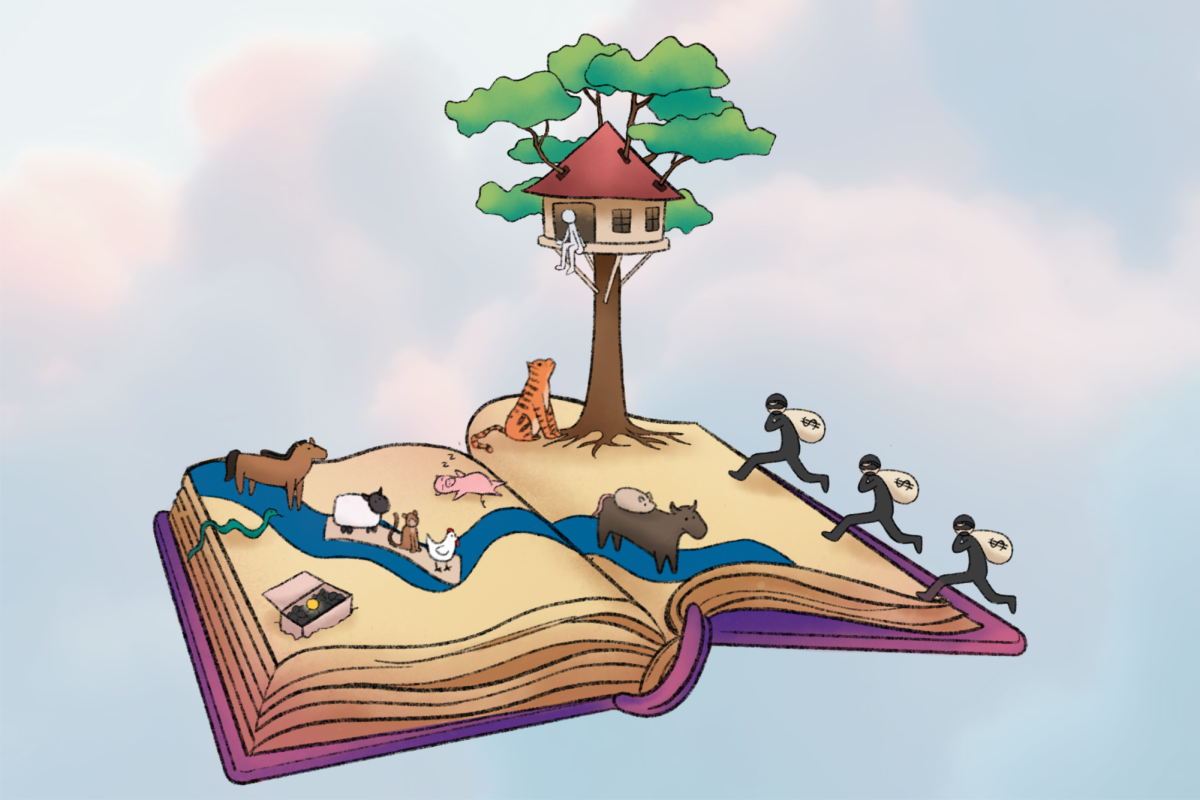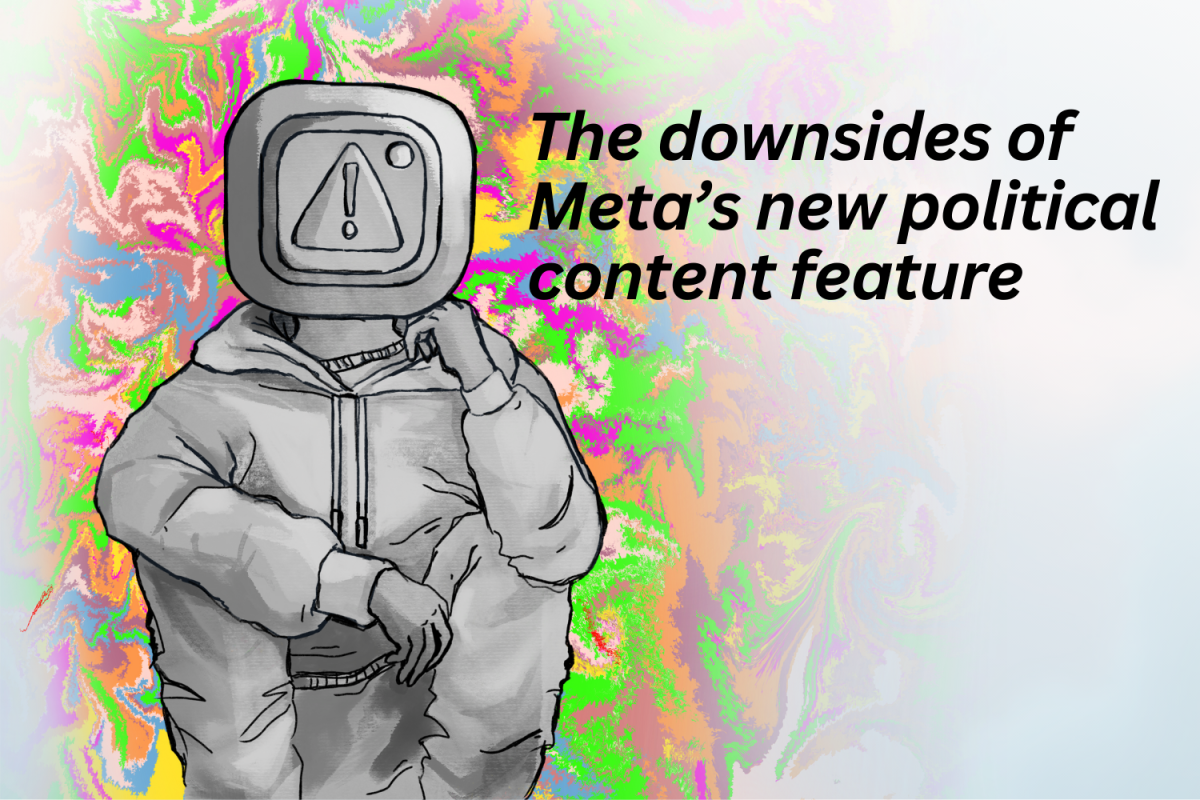TikTok CEO Shou Zi Chew and Sen. Tom Cotton recently engaged in a viral exchange regarding the app’s — and the CEO’s — suspected relationship to the Chinese Communist Party. Owned by the Chinese firm ByteDance, TikTok has raised suspicion among some United States lawmakers who worry that users’ personal information may be accessed freely by the Chinese government. Cotton’s rhetoric serves as a prime example of American animosity toward communism, deeply controversial since its beginning.
Animosity toward communism — often described as “modern-day McCarthyism” — is only a small part of America’s tumultuous relationship with the controversial ideology.
“Some people might view communism as the worst governing structure imaginable,” Junior State of America officer and sophomore Vikrant Vadathavoor said. “Personally, I think that while communism has had its failures, it isn’t an unredeemable structure.”
American support for anti-communism was at its height during the Cold War, manifesting most prominently through proxy wars — American intervention in a foreign country’s wars or democratic processes. In the 45-year stand-off between the Soviet Union and the U.S., the Cold War marked a tense period where both nations used tactics like espionage, propaganda and economic aid to war-torn countries to support their respective interests. The U.S. subsequently made efforts to keep communism at bay —exercising “containment” — fearing its potential influence on American citizens, and its evolution into dictatorships in many countries. The Cuban Missile Crisis, a 13-day standoff between the U.S. and Cuba, escalated military tensions between both parties. During the Vietnam War, the U.S. publicized its attack on communism, emphasizing its military victories to the American public in its effort to defeat North Vietnam.
“There was an intense hatred of communism in the past caused by the fear and competition with the Soviet Union,” West Valley Political Science Instructor Jamilya Ukudeeva said.
With deep-seated hatred for communism on the home front, anti-communists like Sen. Joseph McCarthy persecuted government officials and accused them of being communist sympathizers, bringing about an era known as “McCarthyism.” As a result of charges against these groups, unemployment and imprisonment ran rampant, and more than 2,000 government employees lost their jobs. Furthermore, social minority groups were often associated with communists, and many argued that the existence and growth of minority groups acted as a threat to the currently existing American ideals. These notions contributed to phenomena such as The Lavender Scare in 1947, a mass hysteria surrounding the LGBTQ+ community, conflating their sexuality and communism. Proponents alleged that these groups could not be trusted with government secrets, labeling them as security risks. Nevertheless, communist, socialist and similar leftist movements have existed throughout American history, albeit rarely mainstream.
Patterns of support for the establishment of a communist government have primarily emerged in interims of American history when the working class faced severe inequalities. During the late 19th century, German immigrants spread communist philosophies to America, contributing to the formation of the Communist Party USA in 1919. Though the party was never substantially popular, it spiked in support during periods of disillusionment with capitalism. Prominent American communists include Earl Browder, the party leader until the 1930s, and J. Robert Oppenheimer, father of the atomic bomb and an alleged secret member of the party. Furthermore, civil rights activist and communist WEB Du Bois advocated for social change and Black liberation during the 1920s Harlem Renaissance, with a vision of equity for all. Subsequently, in the late 1930s, many Americans joined the Communist Party following the desperation they faced as a result of the Great Depression.
“The Communist Party had a lot of recruits in the 1930s and many of those people did wind up infiltrating aspects of government and social organizations,” said Andrew Busch, a Professor of Government at Claremont McKenna College.
Modern-day philosophies of the American Democratic Party have often been interpreted as socially democratic, socialist or even communist in nature; the group tends to support issues such as minority and LGBTQ+ rights, political freedom, voting rights and universal healthcare. According to the Pew Research Center, 36% of U.S. adults said that they viewed socialism somewhat or very positively in 2022. Some Americans deem the modern initiatives taken by the American government for public education, aid organizations and the advocacy of free healthcare as communist, championing equal opportunity. However, political scientists widely argue that communist views could not be more different.
“Communism as Marxism-Leninism is not an accurate portrayal of the American Democratic Party, given that one aspect of this government is the state ownership of the means of production,” Busch said. “Socialism itself also has multiple interpretations and sects — even the Nazis, as we often forget, were a socialist party. I would say the term ‘socially democratic’ is most closely aligned with the Democrats today.”
In any case, the implementation of systems like free healthcare and public education in America involves free markets — characteristic of capitalism — where the tax on goods and services are funneled toward universal needs.
Nevertheless, due to growing economic inequality, there has been a rapid expansion of support for socialist and communist movements among younger Americans. A 2020 survey conducted by Victims of Communism Memorial Foundation, found an increase in favorability of the term “socialism” among Generation Z compared to 2019 with the values jumping from 40% to 49%. Furthermore, 35% of Millennials and 31% of Gen Z support a gradual elimination of capitalism in favor of a more socialist government.
“Nowadays, people are not feeling as threatened by communism, partly because the Soviet Union, the main threat, no longer exists,” Ukudeeva said. “When I talk to my students, they say what concerns them most is homelessness, unemployment, economic inequality and inability to access healthcare.”
However, these sentiments are not common among many Americans. Older generations, such as Generation X, often still harbor a lingering fear and resentment toward communism, having lived through the Cold War and an era of extreme American anti-communist views.
The issue of principle versus practice also affects Western perceptions of communism, as communist regimes do not often follow fundamental communist principles. Modern-day so-called communist regimes in China, Cuba, Russia and North Korea inevitably differ from fundamental communism principles, given that communism itself, experts argue, is often too idealistic to execute in its fundamental form. Communism requires a society to be immensely disciplined, and it is easy for those in power to abuse their position; thus, many governments are now communist-turned totalitarian. In these instances, the emergence of communism lies in revolution, violence and the removal of the rich because private property cannot exist.
“Communism only works on a small scale; the people must be a homogenous group,” Ukudeeva said. “You are more likely to share with people who are like you. You are less likely to share with people who are different from you.”
It is for this reason that American political scientists are often skeptical of a reality in which society thrives under communism.
“Communism goes completely against American values,” Ukudeeva said. “That’s why you don’t find many people who support it. Overall, we often agree that socialism is more balanced, a middle ground.”










































































